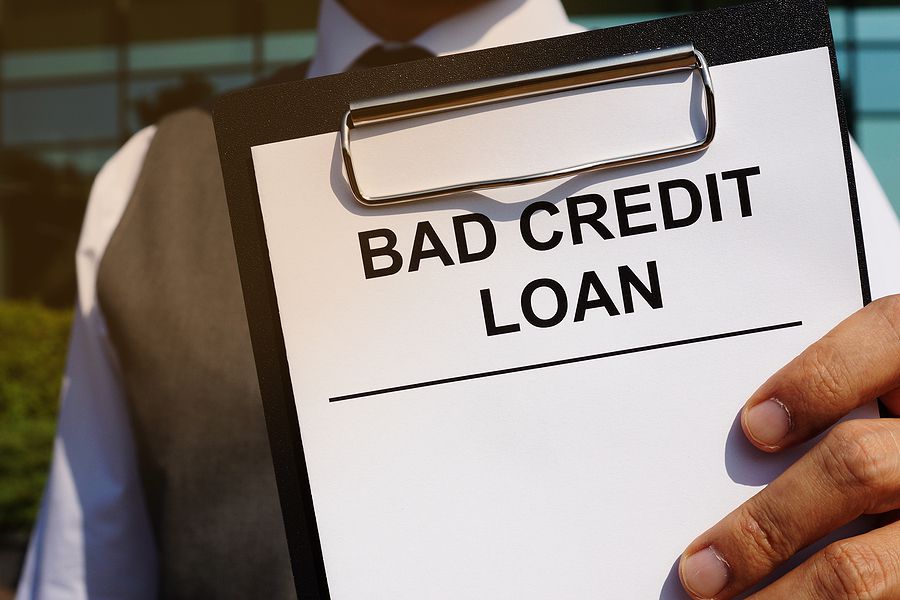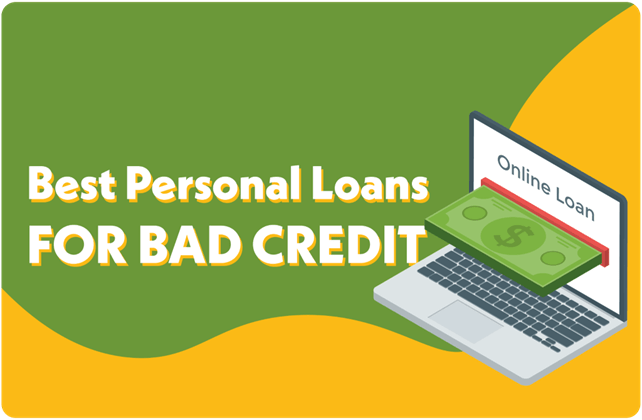So, you find yourself in a bit of a pickle – you’ve got bad credit and you need a loan. Don’t worry, you’re not alone. Many people face this same challenge, and the good news is that there are options out there for you. In this article, we’ll explore the world of finding loans for people with bad credit. We’ll discuss different types of loans, strategies for improving your chances of approval, and some key considerations to keep in mind. By the end, you’ll have a better understanding of how to navigate this process and find a loan that fits your needs, even with less-than-ideal credit.
Understanding Bad Credit
Definition of bad credit
Bad credit refers to a low credit score that indicates a higher risk for lenders. It is a reflection of an individual’s history of late payments, defaults, or other negative financial behavior. When you have bad credit, it becomes more challenging to secure loans and other forms of credit. Lenders perceive you as a higher risk borrower, making it crucial to understand the factors that contribute to bad credit.
Factors affecting credit score
Several factors influence your credit score, ultimately determining whether you have good or bad credit. These factors include:
-
Payment history: Your payment history is a significant aspect of your credit score. Consistently making payments on time helps improve your credit, while late payments or defaults can negatively impact your score.
-
Credit utilization: This refers to the amount of credit you are using compared to your total available credit limit. High credit utilization can indicate financial instability and negatively affect your credit score.
-
Length of credit history: The length of time you have held credit plays a role in determining your creditworthiness. Having a longer credit history demonstrates your ability to handle credit responsibly.
-
Types of credit: The variety of credit types you have, such as credit cards, loans, or mortgages, also affects your credit score. A healthy mix of credit can positively impact your score.
-
Credit inquiries: Each time you apply for new credit, a credit inquiry is generated. Multiple inquiries within a short period may signal financial distress and lower your score.
Impact of bad credit on loan applications
Bad credit can significantly impact your ability to secure loans. Lenders view individuals with bad credit as higher-risk borrowers, making them hesitant to offer favorable terms or approve loan applications. Here are some of the ways bad credit can affect your loan applications:
-
Higher interest rates: Lenders may charge higher interest rates to compensate for the increased risk associated with bad credit. This can result in higher monthly payments and increased costs over the loan term.
-
Limited loan options: Having bad credit can limit the types of loans available to you. Traditional lenders may be less likely to approve your loan application, leaving you with limited options.
-
Stricter eligibility criteria: Lenders may require higher credit scores or additional collateral to approve loans for individuals with bad credit. This can make it more challenging to meet the eligibility criteria for certain loans.
-
Limited loan amounts: Lenders may offer lower loan amounts to borrowers with bad credit. This can restrict your ability to address major financial needs or emergencies.
Understanding how bad credit affects loan applications is essential when exploring loan options specifically designed for individuals with poor credit histories.

This image is property of www.dallasnews.com.
Types of Loans Available for People with Bad Credit
There are various types of loans available for people with bad credit. Let’s explore each one to understand their characteristics and suitability for different situations:
Secured loans
Secured loans are a common option for individuals with bad credit. These loans require collateral, which secures the loan and reduces the lender’s risk. If the borrower fails to repay the loan, the lender can seize the collateral to recover their losses. Some key characteristics of secured loans include:
-
Collateral requirement: You will need to provide collateral, such as a vehicle or property, to secure the loan. The value of the collateral may determine the loan amount you can obtain.
-
Lower interest rates: Secured loans typically come with lower interest rates compared to unsecured loans. This is because the collateral reduces the lender’s risk.
-
Longer repayment terms: Secured loans often offer more extended repayment terms, allowing borrowers to make lower monthly payments over an extended period.
Secured loans are suitable for individuals with bad credit who have valuable assets to offer as collateral. Examples of secured loans for bad credit include home equity loans, auto title loans, and secured personal loans.
Unsecured loans
Unsecured loans are another option for individuals with bad credit. These loans do not require collateral, making them more accessible for individuals who do not have valuable assets to offer as security. Here are some key aspects of unsecured loans:
-
Credit check and eligibility criteria: Unsecured loans may still require a credit check, but lenders tend to have more lenient eligibility criteria compared to traditional loans.
-
Higher interest rates: Unsecured loans often come with higher interest rates since they carry more risk for lenders. Lenders compensate for the increased risk by charging higher interest.
-
Shorter repayment terms: Unsecured loans generally have shorter repayment terms, requiring borrowers to repay the loan within a shorter period compared to secured loans.
Unsecured loans may be suitable for individuals with bad credit who do not have collateral to offer but can show a stable income and ability to repay the loan. Examples of unsecured loans for bad credit include personal loans, credit card cash advances, and online installment loans.
Payday loans
Payday loans are short-term loans designed to provide immediate cash for individuals facing unexpected expenses between paychecks. Here’s what you need to know about payday loans:
-
Overview and eligibility: Payday loans are typically small-dollar loans with a high cost short-term.
-
Repayment terms and APR: Payday loans are expected to be repaid by the borrower’s next paycheck, usually within two weeks. However, these loans often come with high annual percentage rates (APR), making them an expensive borrowing option.
-
Risks and alternatives: Payday loans have come under scrutiny due to their high costs and potential trap of debt. Alternatives to payday loans include personal installment loans, borrowing from friends or family, or negotiating a payment plan with creditors.
Payday loans should only be considered as a last resort due to their high costs and potential to trap individuals in a cycle of debt. Exploring other loan options or alternative solutions is recommended before turning to payday loans.
Credit union loans
Credit union loans are an alternative to traditional banks and lenders. These non-profit financial cooperatives offer various loan options, including those tailored for individuals with bad credit. Here’s what you should know about credit union loans:
-
What are credit unions? Credit unions are member-owned financial institutions that offer financial products and services. They typically have lower fees and interest rates compared to traditional banks.
-
Eligibility and membership: To access credit union loans, you typically need to become a member of the credit union, meeting specific eligibility criteria as defined by the institution.
-
Interest rates and terms: Credit unions often offer competitive interest rates and flexible repayment terms on their loans, making them an attractive option for individuals with bad credit.
Credit union loans can be an excellent choice for individuals with bad credit, as they often have a more personalized approach and provide support in improving one’s financial well-being.
Peer-to-Peer Loans
Peer-to-peer (P2P) lending platforms connect borrowers directly with individual investors willing to lend money. Here’s what you need to know about P2P loans for people with bad credit:
-
Explanation of peer-to-peer lending: P2P lending eliminates traditional financial institutions from the lending process. Borrowers are matched with investors through online platforms.
-
How it works for people with bad credit: P2P lending platforms may be more lenient towards individuals with bad credit, as they consider additional factors beyond credit scores when evaluating loan applications.
-
Advantages and disadvantages: P2P loans offer potential benefits such as competitive interest rates and flexible terms. However, they may come with higher origination fees and limited loan amounts.
-
Popular peer-to-peer lending platforms: Examples of well-known P2P lending platforms include LendingClub, Prosper, and Upstart.
P2P loans can be a viable option for individuals with bad credit, particularly for those who may not meet traditional lenders’ stringent criteria. It is important to thoroughly research and assess P2P lending platforms before proceeding with a loan application.

This image is property of image.cnbcfm.com.
Improving Your Chances of Getting Approved
While securing loans with bad credit may be challenging, there are steps you can take to improve your chances of getting approved. Here are some strategies to consider:
Understanding and improving your credit score
Start by understanding the factors that impact your credit score. Monitor your credit report regularly and look for any errors or discrepancies. Work on improving your credit score by making timely payments, reducing credit utilization, and addressing any negative items on your report.
Reducing existing debt
Lenders consider your existing debt when evaluating your loan application. Pay down outstanding balances and reduce your debt-to-income ratio to demonstrate financial responsibility and improve your creditworthiness.
Applying with a co-signer
If you have someone with good credit willing to vouch for your creditworthiness, consider applying for a loan with a co-signer. A co-signer agrees to be equally responsible for the loan, providing an added layer of security for lenders.
Providing additional collateral
If you are applying for a secured loan, offering additional collateral beyond the requirement may help strengthen your application and increase your chances of approval.
Exploring alternative lenders
Traditional banks and lenders may be more strict when it comes to bad credit applicants. Consider exploring alternative lenders that specialize in providing loans to individuals with poor credit histories. These lenders often have flexible eligibility criteria and may offer more tailored solutions.

This image is property of i0.wp.com.
How to Apply for a Loan with Bad Credit
Applying for a loan with bad credit requires careful preparation. Here’s a step-by-step guide to help you navigate the process:
Gathering necessary documents
Before applying for a loan, gather all the necessary documents, including proof of income, identification, and any supporting documents that may strengthen your application, such as bank statements or proof of collateral.
Finding lenders who offer bad credit loans
Research and identify lenders who specifically offer loans for individuals with bad credit. Look for lenders who have a positive reputation, transparent terms, and reasonable interest rates.
Comparing interest rates and terms
Once you have a list of potential lenders, compare their interest rates and terms. Consider the APR, repayment terms, and any additional fees associated with the loan. This will help you determine which lender offers the most favorable terms for your financial situation.
Completing the loan application
Carefully complete the loan application form, ensuring accuracy and completeness. Provide all the requested information and attach any supporting documents as per the lender’s requirements. Double-check everything before submitting the application.
Understanding loan terms and conditions
Once you receive loan offers, carefully review the terms and conditions. Ensure you fully understand the interest rates, repayment schedule, any additional fees, and consequences of defaulting on the loan. Seek clarification from the lender if anything is unclear.

This image is property of www.finder.com.
Preventing Further Damage to Your Credit
While securing a loan with bad credit is a potential solution, it’s essential to prevent further damage to your credit in the future. Here are some steps to consider:
Paying bills on time
Make a conscious effort to pay all your bills on time, as late payments can further lower your credit score. Set reminders or automate payments to ensure you never miss a due date.
Avoiding new debt
Be mindful of taking on excessive debt while you work on improving your credit. Avoid unnecessary credit card purchases or opening new credit accounts unless absolutely necessary.
Monitoring credit reports
Regularly monitor your credit reports from all three major credit bureaus (Equifax, Experian, and TransUnion). Look for any errors or inaccuracies and report them promptly to have them corrected.
Disputing inaccuracies
If you identify any inaccuracies on your credit report, initiate the dispute process with the respective credit bureau. Follow up to ensure the corrections are made in a timely manner.
Seeking professional credit counseling
Consider seeking the assistance of a reputable credit counseling agency. They can provide guidance on improving your credit, managing debt, and creating a personalized plan to achieve financial stability.
By implementing these preventative measures, you can safeguard your credit and improve your financial standing over time.
In conclusion, bad credit can make securing loans challenging, but it doesn’t mean you have no options. Understanding the types of loans available for people with bad credit, such as secured loans, unsecured loans, payday loans, credit union loans, and peer-to-peer loans, can help you make informed decisions about which one best suits your needs. Additionally, taking steps to improve your credit, exploring alternative lenders, and being mindful of your financial choices can help you rebuild your credit and regain control of your financial future.

This image is property of public.newsdirect.com.
